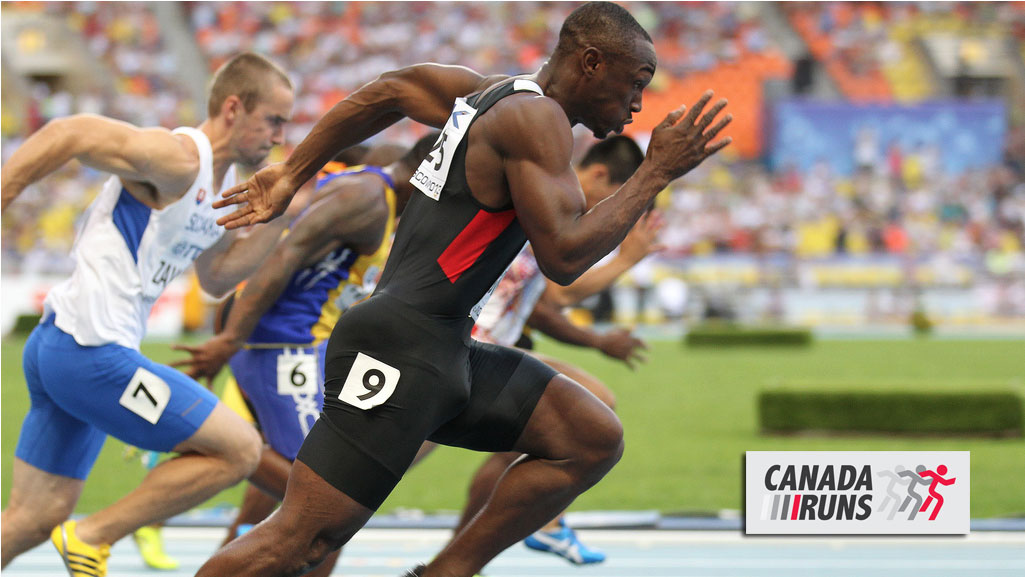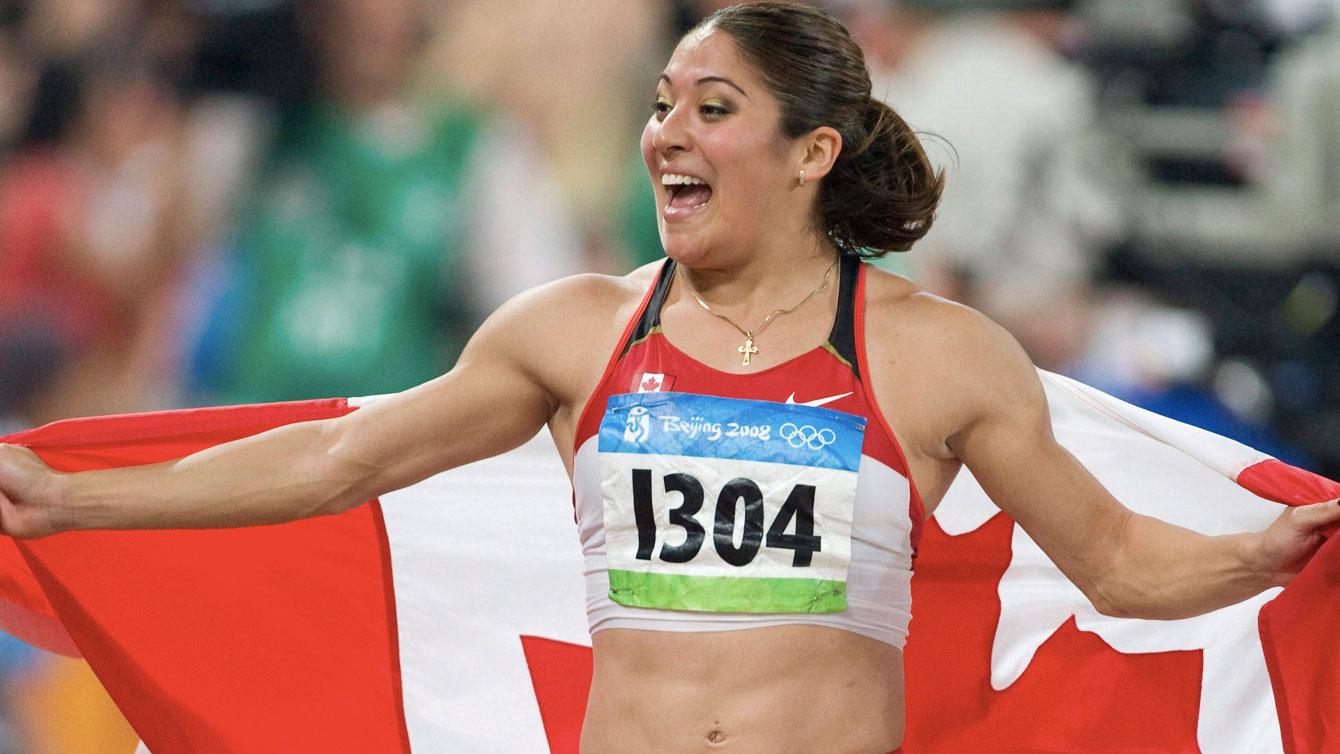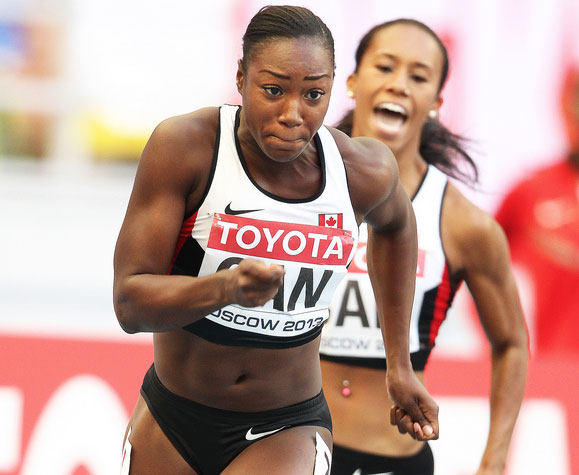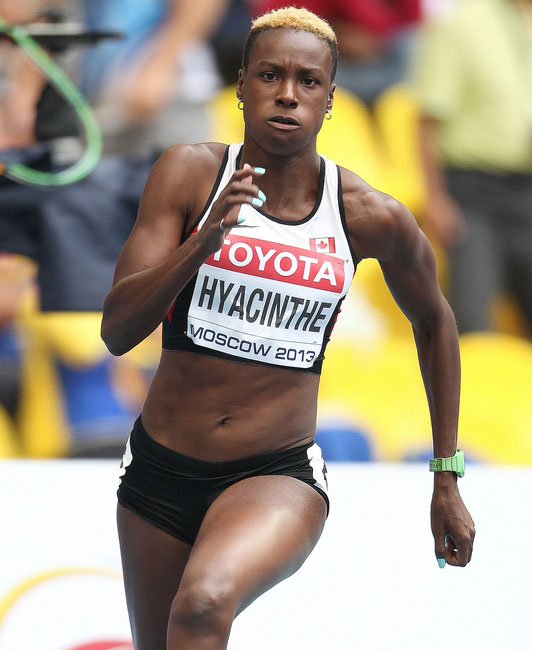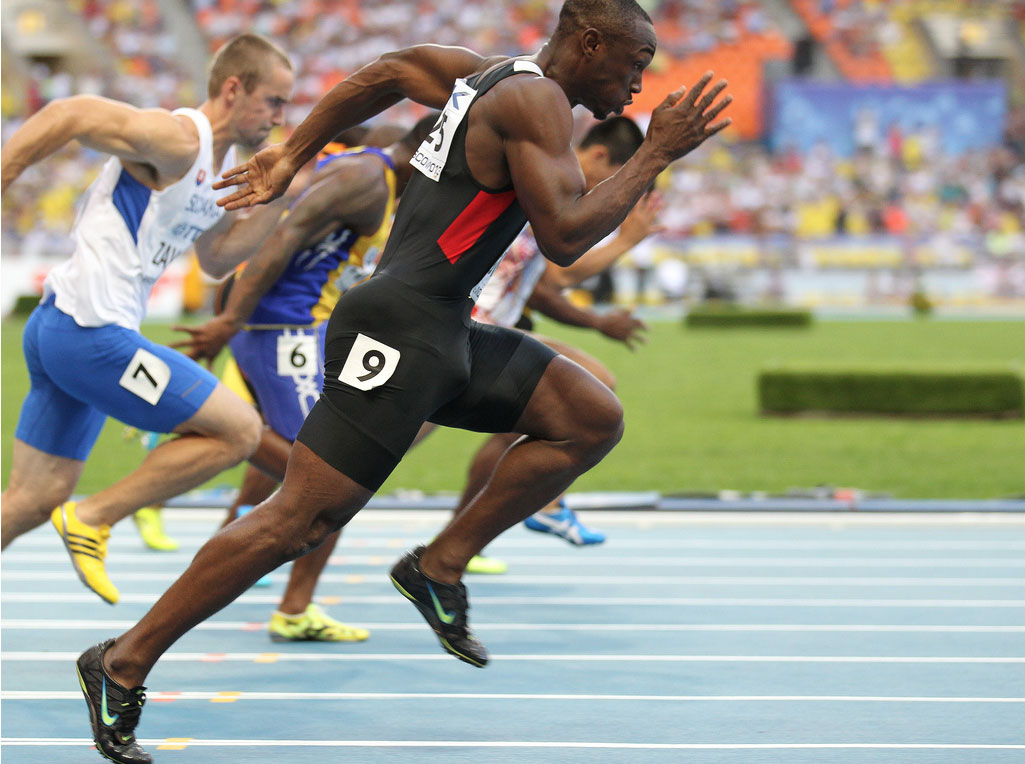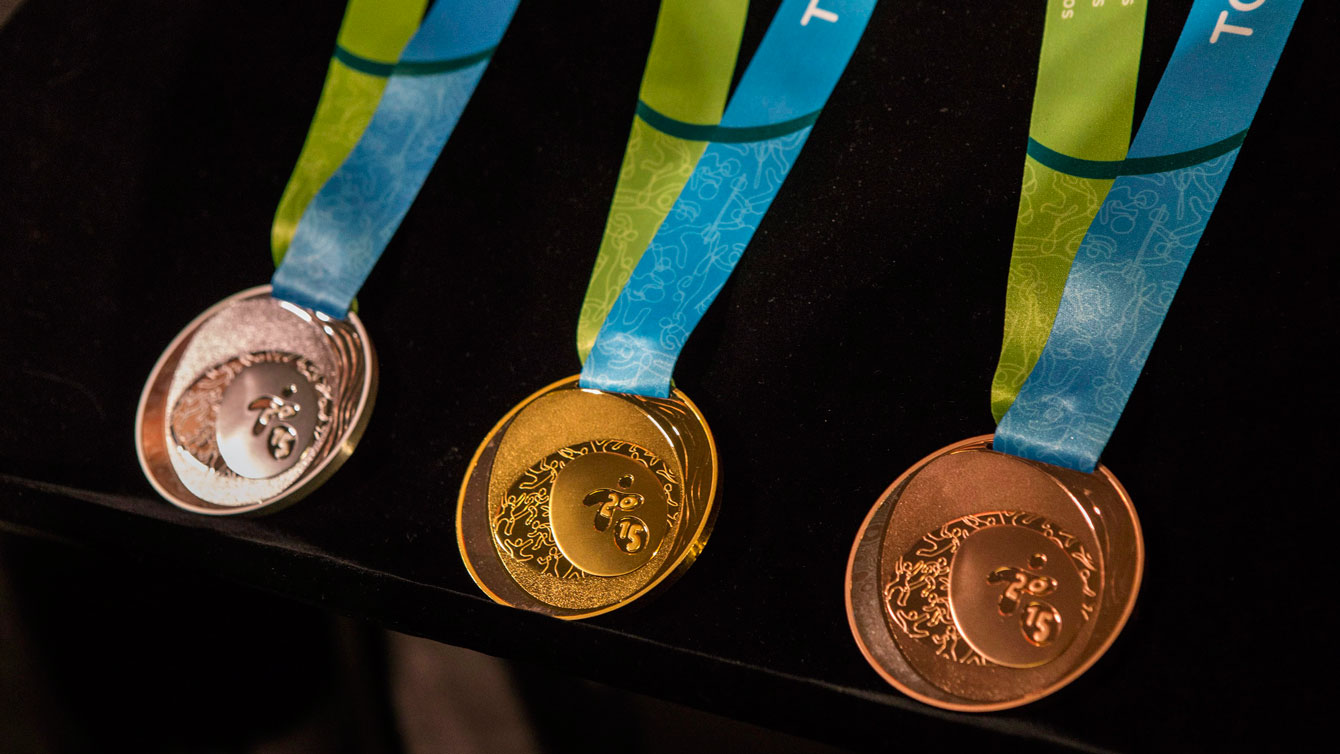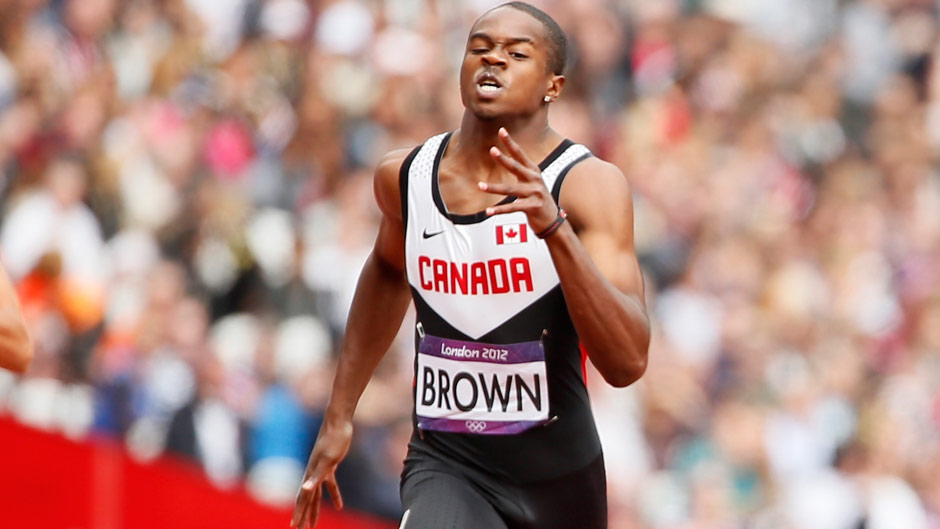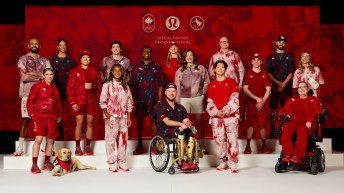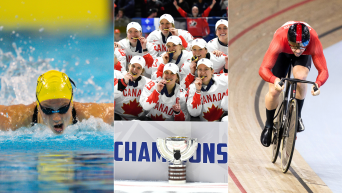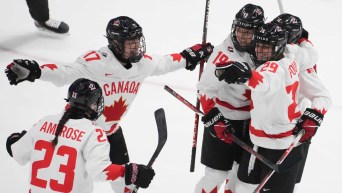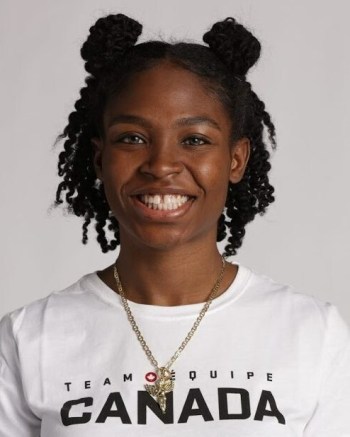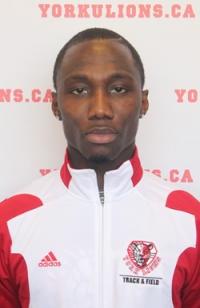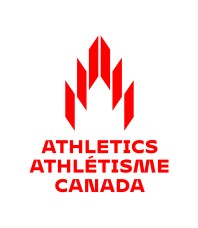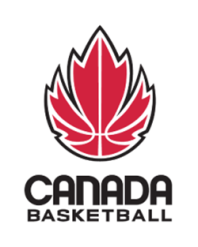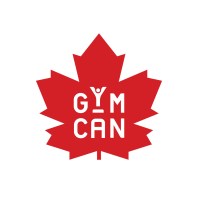Canadian sprinters ready for global resurgence
This story is part of an Olympic.ca series on running called Canada Runs.
Canada has a rich Olympic sprinting history. However, long spells of success in athletics have been elusive for the nation as major achievements often followed a period of lull.
The most recent calm may be coming to an end.
Today there is a young, confident group of Canadian sprinters hoping to reset Canadian fortunes in their sport. Late last week they were met by tragic news of a friend and teammate, Daundre Barnaby passing away in a swimming accident. Prior to the incident four Canadian sprinters discussed the current athletics climate.
“Canadians can expect great things on the horizon in the sprints and a new era for Canadian sprinting,” national 200-metre record holder Aaron Brown said over email. “This new crop of Canadian runners are very hungry and we’ve all for the most part been through the NCAA system, which I feel like is the best atmosphere for young athletes to experience coming from Canada.”
RELATED: Seven tips on running this season
Since Donovan Bailey roared past Frankie Fredericks and Ato Boldon to win 100-metre gold at a World Record pace in Atlanta 1996, and an unfiltered 4×100-metre men’s relay smackdown of the home nation a week later, Canada hasn’t won an athletics gold medal at the Olympic Games.
Sprinters in particular have been hit hard, held to one medal – a bronze for Priscilla Lopes-Schliep in the women’s 100m hurdles at Beijing 2008 – since Bailey and co. set the track on fire in Atlanta.
Brown says the U.S. college system, with its rich athletic scholarships at top schools attracting many global athletes, has prepared Canadian runners to compete with future world and Olympic stars.
RELATED: Most memorable Olympic running moments
“Going through the NCAA you get a chance to see a small preview of what it’s like competing against the next wave of world class talent from around the world and it puts everything in perspective,” said Brown, 22, from Toronto who runs for University of Southern California. It was at a NCAA meet in 2014 where Brown set the 20.16 mark in the 200m, breaking Atlee Mahorn’s Canadian standard set back in 1991.
“It didn’t really dawn on me that I had broken such an old record because in NCAA you need to put up outstanding times in order to be competitive,” Brown said.
The background on many of the world’s top runners and jumpers reveal a U.S.-collegiate past. Although national talent can also prosper at home, as 20-year old Khamica Bingham can attest.
“I think about the Olympics in Rio everyday,” Bingham, who runs for York University, wrote in an email. “During training I always remind myself when days get hard what all my hard work is gearing up for. When I’m at home, I visualize myself running in the 100-metre finals and 4×100-metre relay at Rio, crossing the finish line, and holding up the Canadian flag in shock with the biggest smile on my face.”
Bingham ran the anchor leg for Canada in the 2013 World Championships in Moscow. The team made the final after setting a national record to get there. “After we saw the time of 42.99 and ‘NR’ popped up beside it felt like we won a medal.”
Cracking the 43-second mark in the relay allows Canadian women into a medal conversation for Rio, where clean baton exchanges and confidence can go a long way to securing a coveted place on the podium.
Another member of that team is two-time defending Canadian women’s 200m champion Kimberly Hyacinthe, 26, who attended University of Québec. Hyacinthe highlighted the importance of individual improvements that have massively helped Canada’s lot over the years.
“The first time I broke the 23 seconds barrier in the 200 metres is the best memory to date for me. It happened at the National championships in 2013 and I was not expecting it at all, especially running into a headwind.”
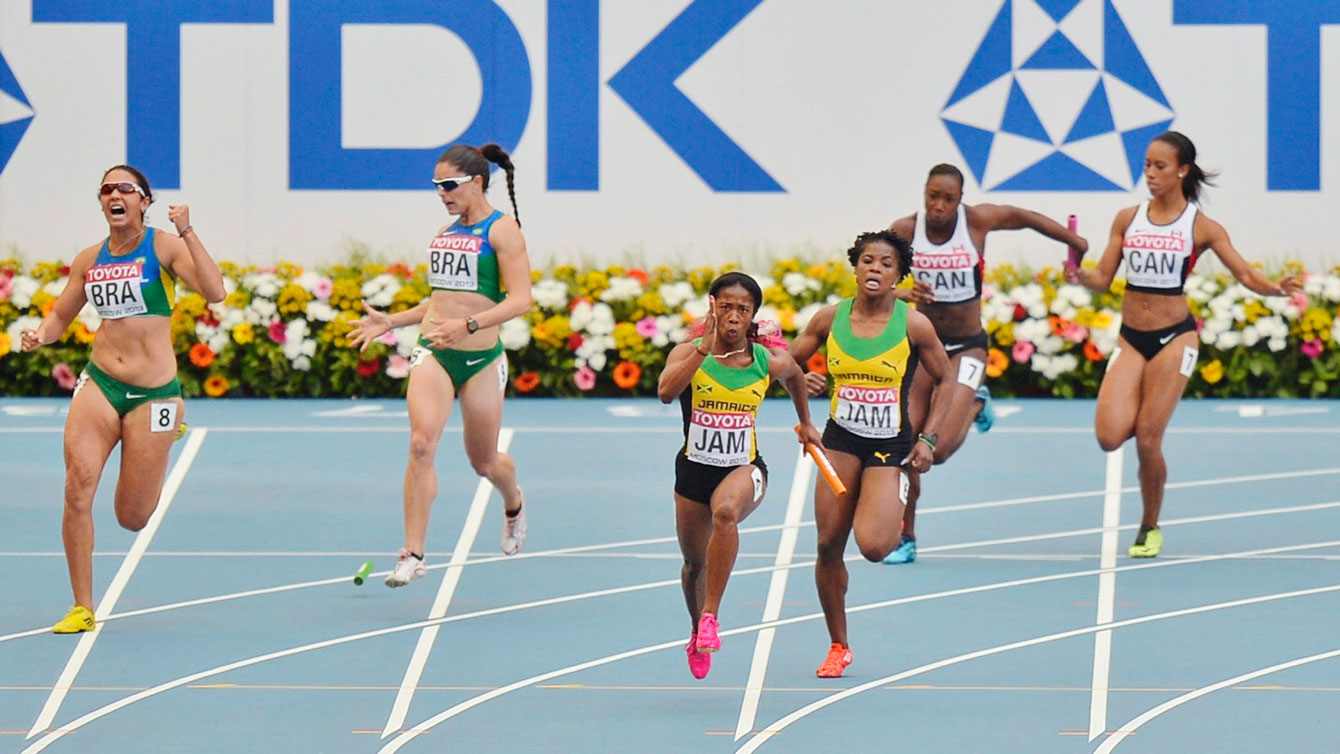
Brazil (left) drops the baton as Canadians and Jamaicans get away with clean exchanges at Moscow 2013, the IAAF World Athletics Championships.
Behind Jamaica and the United States, the bronze medal is often up for grabs at international meets, but even the top two positions aren’t guaranteed if the stick doesn’t make it around the track. With more immediate competition ahead however, Hyacinthe isn’t thinking about Olympics just yet.
“I don’t like to think too far ahead, but the Olympics are definitely a goal of mine. I am mostly focused on training and performing at Pan Ams and worlds.”
Gavin Smellie shared Hyacinthe’s sentiment for the road ahead. At just 28, one of the senior sprinters at Canada’s arsenal, Smellie has set “a medal from the Pan Am Games and also from the world champs in Beijing” as goals for this season.
Smellie was part of the heartbreaking 4x100m relay team that lost the bronze medal at London 2012 on a technicality. They received redemption at the worlds in Moscow a year later when Great Britain was disqualified on a shockingly poor baton exchange to put the Canadians on the podium.
“You know, the team was devastated (in London) as we were trying to prove that we are among the best in the world and disappointment came instead. So going into the World Champs, finishing in the bronze medal position and even running a faster time definitely proved that we are top three in the world and it was a great feeling.”
Smellie and Brown ran the first two legs, giving way to Dontae Richards-Kwok and Justyn Warner to bring it home at a time of 37.92. Usain Bolt-led Jamaica took gold with 37.36 and the Americans ran 37.66 for silver. Canada is back among the world’s best and will be “hoping for a different colour medal this time” in Beijing, Smellie says.
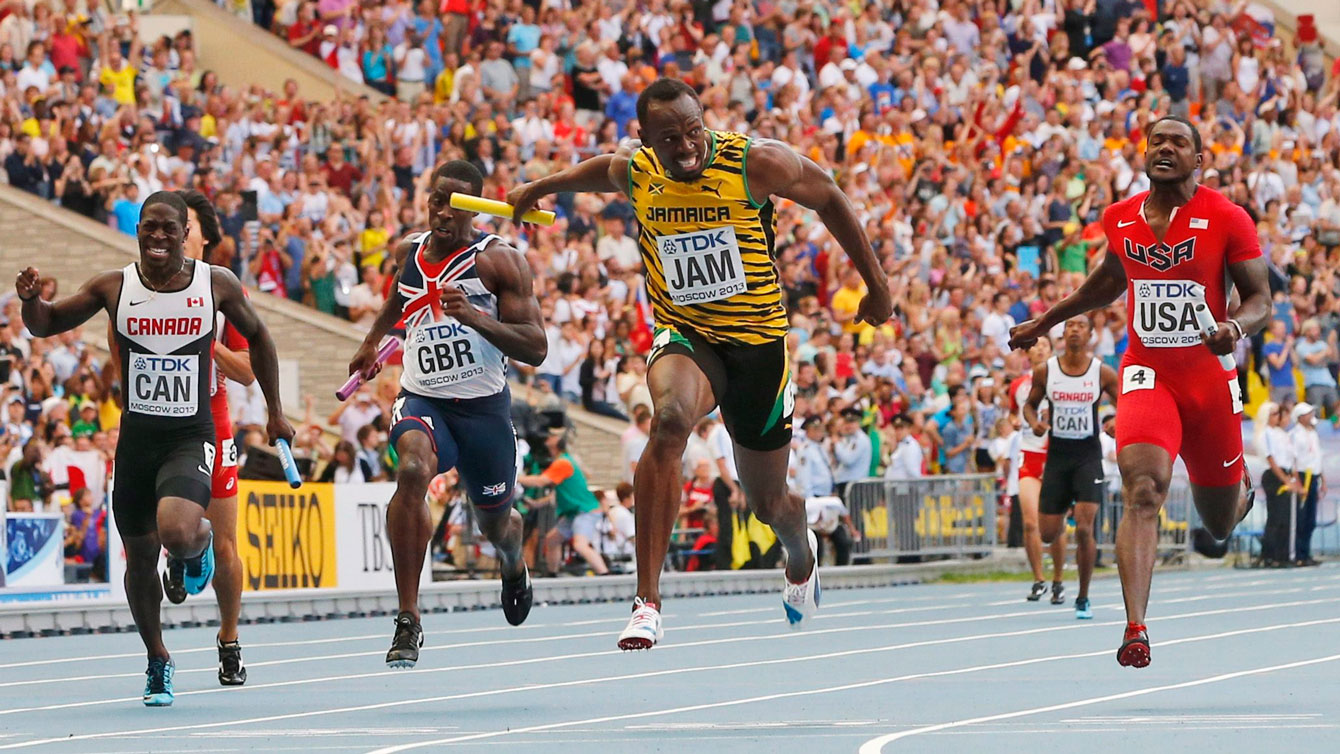
Justyn Warner (left of screen) runs the anchor leg that ultimately delivered Canada a bronze medal in the 2013 World Championships behind Usain Bolt-led Jamaica and the United States.
With a major meet at home in Toronto and the worlds in Beijing, Canadian sprinters will have a good handle on where they are internationally in 2015. The Pan Am Games also provide a chance to give fans renewed hope on a program that’s making visible, results-based strides led by phenomenal runners.
“I realize the rarity of being able to compete against a world class field in front of my home town,” said Brown, who calls his 2010 World Junior bronze won in Moncton, New Brunswick “one of the best moments” of his career. “Most world class meets take place overseas, so to have a high calibre race in my home city – a place I rarely get to visit – is special. It would be a dream come true to be able to have success in my own city.”
Smellie says he is excited to compete in front of family and friends in his hometown. “We have home court (track) advantage so looking forward to hearing that roar cheering for us Canadian athletes.”
Bingham says she is “aiming for a Pan Am Games medal, inspire others and make my country proud” at home, where she singles out her father Carl as her own personal inspiration. Her competition may come from a teammate.
“It would be amazing to stand on the podium on home soil,” Hyacinthe said as she too expressed the “amazing” chance to run in front of loved ones.
Talent and discipline aside, confidence is the currency that drives sprinters. The current Canadian crop has all the necessary character tools including the unabashed confidence that attracts sports fans to runners.
Brown, who says he will be “disappointed” if he doesn’t go sub 10-seconds in the 100m and sub-20 in the 200m this year, exemplifies the current attitude among Canadian runners, who are not at competitions to fill out the program. Medals are wanted and expected.
“This next wave of sprinters are hungry to return glory back to Canada and I feel we have the potential to bring back the same kind of competitive atmosphere that existed in the sprints in the 90s,” Brown said.
“I feel strongly that in the near future there will be some times run that haven’t been run either a very long time or at all before in Canadian history and our relay pool has the potential to do some special things for years to come if everyone stays healthy.”
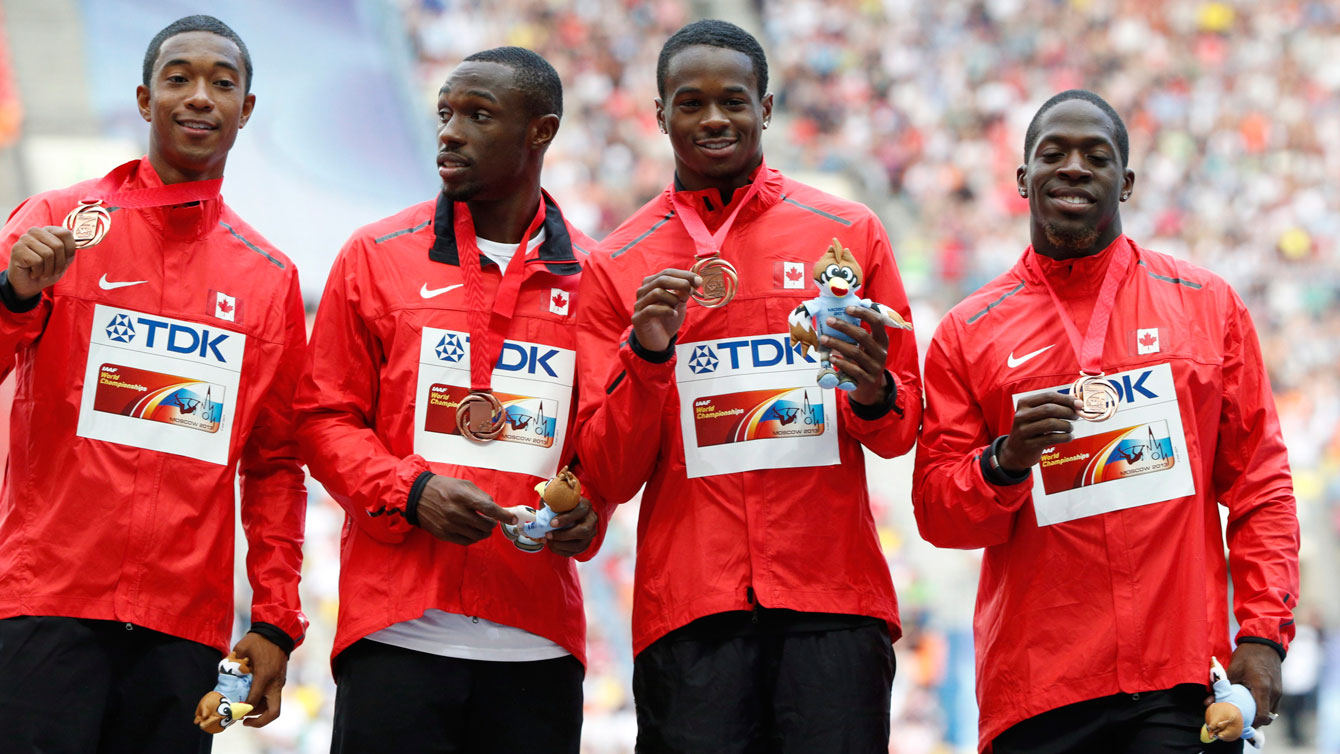
Canadian sprinters get a taste of the podium at Moscow 2013, the IAAF World Athletics Championships.
That belief is echoed by the veteran Smellie, who feels the nation has “a young group of very talented athletes and I believe they’ll surpass the likes of Jamaicans and Americans if Canada continues to support.”
The lull looks to be over and Canadian sprinting may be catching up in a hurry.

